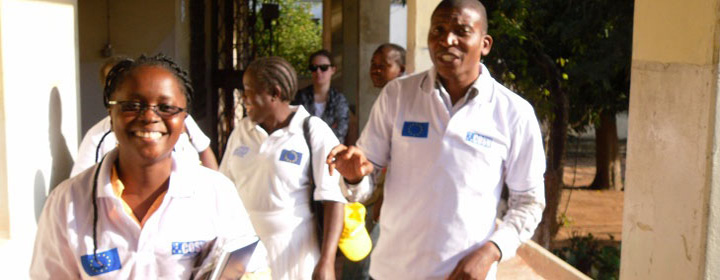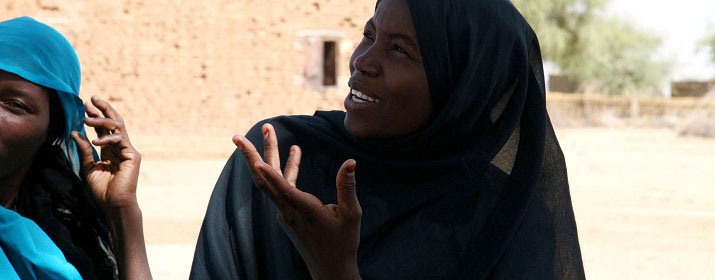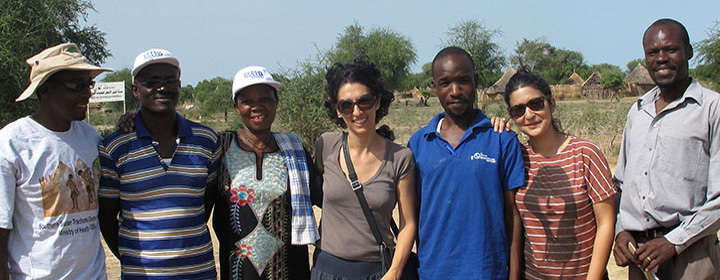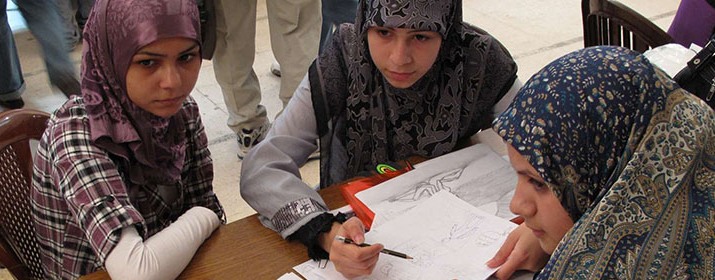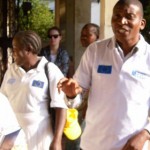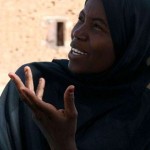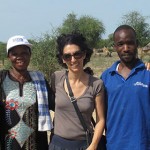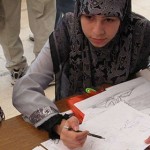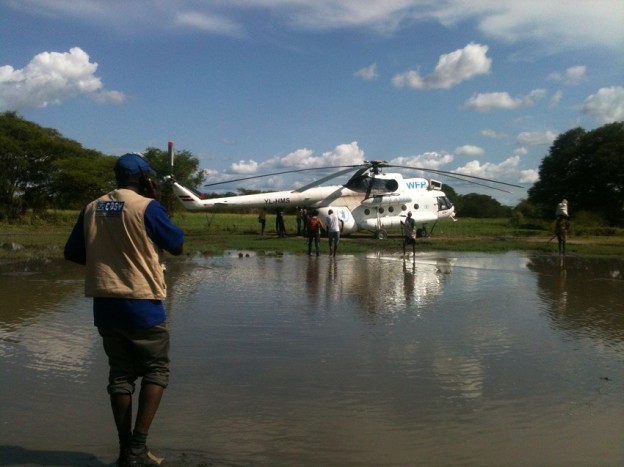They are four, all men and all barefoot. They come from the bush, crossing the airstrip now submerged under about a foot of marsh, mud and insects. They move fast along the small dam built to contain the flow of water and the damages it brings with it: there is water and mud everywhere, even into the tukuls, in the temporary shelters made of tarps, in kitchens and lavatories. The four men are moving quickly to bring a sick person to the clinic in Jiech, holding a stretcher made of cloth and logs of red acacia.
Because of the conflict many of the health facilities in the county were closed or destroyed and Jiech remains the only point of reference that can provide basic services: the clinic with the laboratory, the department of nutrition for malnourished children and the maternity area. Just two hours earlier, with an helicopter, we were able to unload a ton of material between medicines and nutritional supplements, and six tons are in Juba waiting to be brought here and in nearby villages.
The rainy season has arrived cutting completely off from the world a place that was already isolated, home to about 18,000 people between residents and displaced people fleeing the conflict. The airstrip, the only connection to the arrival of medicines and other necessities, is flooded and unusable and until the water will be absorbed, the only way to get to Jiech is the helicopter.
How far is Pagil? Three days of walking. And the border? A week. Where does the food and all you need come from? From Juba. And how far is Juba? Juba is too far away to count the days of walking, it’s three hours by helicopter, three hours that bind the lives of people Jiech – as well as Pagil and Mogok – to food, health and nutrition.
In an environment already overburdened by the conflict, broken out in December 2013, the inaccessibility caused by floods makes it even more difficult to provide the communities with those basic services to lead a dignified life. In Jiech there is no food, there is no possibility to connect with other places, there is no phone line, there are no schools, closed because of the fighting.
Here thousands of people found refuge, fleeing Ayod where in almost ten years we have built an efficient health center and fought and won against Kala-Azar (an endemic leishmaniasis that every five years causes an epidemic), assisted mothers during childbirth, recovered children from malnutrition, faced epidemics of TB and measles, trained medical staff able to respond to emergencies. Today Ayod can no longer be accessed, the community has fled, the center is destroyed, the medical staff ran away and the internally displaced people who found refuge in Jiech need everything. Health care, nutrition services, a safe space for their children and peace.
That’s why we are in Jiech, not to abandon all those people who have relied on our work over the years and now, far from their homes and from their previous life, need to restart a daily safe and dignified life.
The program that we are implementing includes health, nutrition and education activities, to create a system of basic services which can respond to the immediate emergency situation and can set the foundations for the creation of stability and continuity. In the clinic, with the arrival of drugs, we can address the most common diseases, such as malaria – that especially with the rains and stagnant water increases the cases in the county, or kala-azar, which is experiencing a greater number of people infected than last year average. With mama-kit, we restarted activities in support of pregnant women, joined by a nutrition program that allows us to deal with cases of severe and acute malnutrition in children under 5 year.
Key for us is also the program of “education in emergency”, which allowed the reopening of primary schools with temporary educational and recreational kits. School provides an essential service to create a safe environment for children, away from the conflict, where to recover from the trauma of war. The teachers, for the most part volunteers, pass to pupils also those “life skills” useful to address the situation, such as the importance of hygiene, proper use of latrines, use of clean water, soap, mosquito nets. Schools are still few and only a limited number of children can enroll, but the idea is to expand the service, perceived by parents as very positive and constructive for the future of their children.
Challenges are there, and the main obstacle is the inaccessibility of the area and the problems associated with the distribution of drugs, supplements for nutrition, mama kits and educational kits. We are working to get access to more helicopter flights to reach Jiech, Pagil and Mogok.

